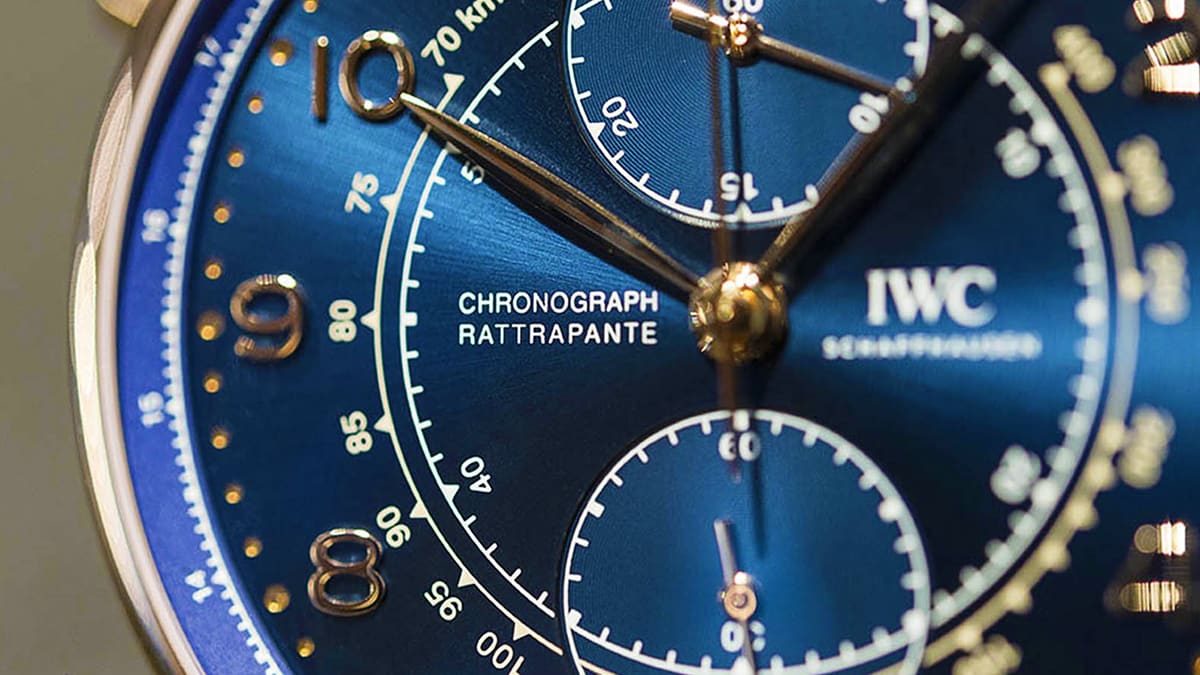
Are you ready to meet one of the most romantic complications of the watch world?
Rattrapante, Double or Split-Seconds chronograph... These are the names derived from watchmaking terminology to describe the complication for measuring intervals for multiple, mostly two, occasions.
I said romantic at the beginning of my article as the Rattrapante, which toppled standard chronograph, synonymous with functionality in mechanical watchmaking, from its throne, is a feature that can be enjoyed only by the enthusiast and the connoisseurs.
If you ask what they are for, double chronographs can find their use, but rarely. You can measure two occasions/events that started simultaneously or at different moments. Split-Seconds are the most common type of chronographs we encounter. The word Rattrapante, of French origin, comes from catching, just like the second hands unite with each other with a single push of a button. Although the most common examples of double chronographs have double second hands, there are also models equipped with a pair of minute and hour hands.
The double-chronograph was invented by Patek Philippe in 1903. It took many years to adapt the mechanism from pocket watches to wristwatches. Chronographs work by two different methods. The Split-Seconds feature in column-wheel coordinator chronographs also works by the same principle. This feature became available to the camshaft-activated chronograph movements in 1992 under the leadership of IWC. The double chronograph module, developed by Richard Habring, is integrated into the ETA Valjoux 7750 movement. In the same year, IWC introduced the Pilot DoppelChronograph model featuring this caliber. Watches featuring this very movement are still available in IWC catalogs. Let me add that, that Habring signed caliber is available with very stylish designs in Habring2 brand watches.
Having double chronograph watches requires a lot more expensive operation than single chronograph models. The Triple Split model, signed by A. Lange & Söhne, has double hands for the hour, minute, and second hands at the same time. Or, the 5370 and 5204 families, one of the most stylish watches produced under the Patek Philippe roof, manage to attract attention with their hand-wound calibers and list prices with lots of zeros.
Probably due to the consumer orientation back in the day, the Split-Seconds chronograph feature is much more common in vintage watches compared to modern ones. From Universal Geneve to Rolex, Bovet, Eberhard & Co, and Minerva, we come across models with hand-wound Split-Seconds chronograph calibers. By today's standards, unfortunately, the interest in this magnificent feature, which results in increased thickness and sky-rocketing list prices, is not very high.
Fortunately, there are Split-Seconds chronograph models in the product lines of brands that are still in the relatively accessible segment like IWC and Sinn. On the other hand, the eye-catching timepieces produced with modern versions of Minerva movements by Montblanc are the most up-to-date samples of high watchmaking in this regard.
I want to end my article with the newest and the most extraordinary member of Split-Seconds chronograph watches. Atelier de Chronometrie # 8 Unique Piece. It is hard to resist the breathtaking elegance of this watch, which is a one-off piece, as the name suggests. With its 39.8mm x 14.3mm 18K gold case, the model, which is among the GPHG 2020 finalists, restores our belief in double chronographs and while fascinating with its movement.